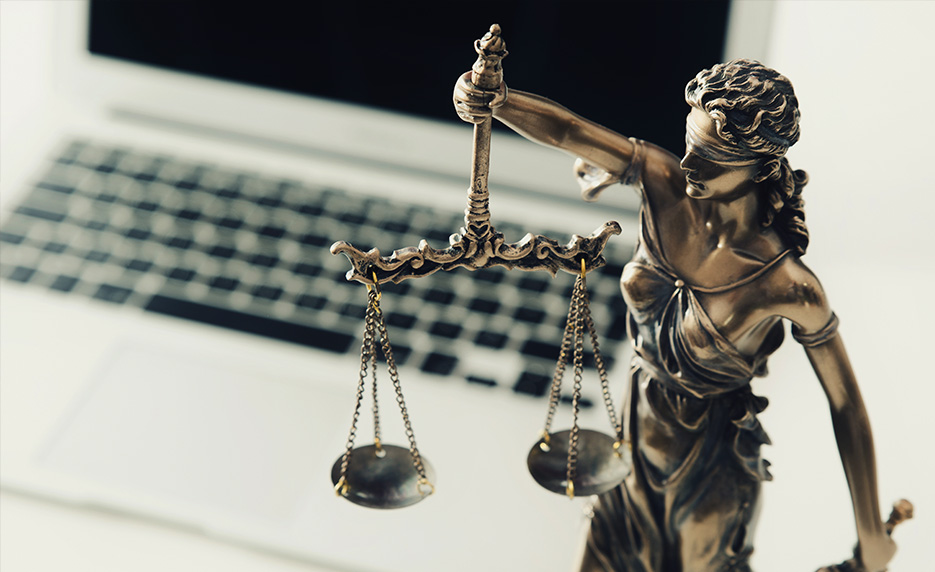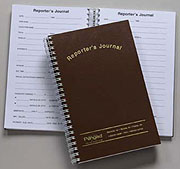Must-Have Qualities for Success in durham reporting
Must-Have Qualities for Success in durham reporting
Blog Article
Comprehending Just How Court Reporting Functions: A Trick Component in the Justice System
Court coverage plays an essential function in the legal system. It assures that all court room procedures are documented precisely. Court reporters utilize customized tools and techniques to develop verbatim records. These records serve various functions, including appeals and lawful clearness. Comprehending the intricacies of court coverage reveals its value in maintaining the integrity of justice. What obstacles do stenotype reporter face in this developing area?
The Duty of Court Reporters in the Legal System
Stenotype reporter play an important duty in the lawful system, guaranteeing precise and trustworthy documents of courtroom process. They are liable for catching every talked word throughout trials, hearings, and depositions, creating a verbatim records that acts as an irreversible document. This documents is critical for appeals, supplying a structure for higher courts to examine cases.In enhancement to recording spoken language, court reporters also facilitate interaction between attorneys, courts, and other events associated with lawful matters. Their job promotes transparency and responsibility within the judicial process.Utilizing specialized equipment and software, court reporters have to remain concentrated and mindful, typically functioning under pressure to satisfy limited due dates. Their records are not just vital for lawful reference however also for preserving the stability of judicial proceedings. Ultimately, court press reporters contribute substantially to the fair management of justice, ensuring that all voices are listened to and taped precisely.
Crucial Skills Required for Court Coverage
Court reporting needs a distinct collection of skills that are vital for precision and efficiency. Proficiency of stenography strategies, strong listening and comprehension abilities, and careful attention to detail are essential for success in this area. These skills make it possible for court press reporters to create reputable transcripts that act as crucial records in the legal system.
Mastery of Stenography Techniques
While grasping stenography strategies is necessary for aspiring court press reporters, it calls for dedication and practice to create the required abilities. Stenography includes making use of a specialized keyboard to catch talked words in real time, making precision and speed crucial. Stenotype reporter have to discover to use shorthand symbols and establish muscle memory to ensure efficient transcription. Regular exercise with dictation workouts helps in enhancing inputting speed, while experience with legal terminology boosts comprehension throughout proceedings. Moreover, comprehending the phonetic framework of the English language is substantial, as it helps in precisely recording dialogue. Eventually, proficiency in stenography not just assists in efficient interaction within the courtroom however likewise supports the honesty of the lawful process.
Solid Listening and Comprehension
Efficient court reporting hinges not only on stenography abilities yet likewise on solid listening and understanding capacities. Stenotype reporter should actively listen to testimonies, legal arguments, and discussions, assuring they understand the nuances of spoken language. This skill assists in exact transcription of complex legal proceedings, where every word matters. Understanding prolongs beyond surface-level understanding; press reporters should interpret context, tone, and intent to catch the significance of conversations precisely. Additionally, they frequently come across specialized terminology and jargon, needing fast adaptation and retention of info. The capability to synthesize what is listened to while simultaneously transcribing is important, as it assures the honesty of the official record. As a result, solid listening and understanding are indispensable in providing exact and dependable court reports.
Interest to Information
Interest to detail is a basic skill for stenotype reporter, matching their listening and understanding capacities. This accuracy assures that every talked word, inflection, and subtlety is captured precisely in transcripts. Court press reporters should thoroughly keep in mind lawful terms, names, and complex discussion to provide reputable records for legal procedures. A minor oversight can lead to substantial repercussions, possibly impacting instance end results (durham reporting). Furthermore, stenotype reporter commonly function under pressure, requiring them to keep focus and precision in hectic settings. Their attention to information not just boosts the integrity of the judicial procedure however also cultivates trust amongst attorneys. Inevitably, this ability is necessary for creating transcripts that function as conclusive documents in litigation, ensuring justice is supported
The Modern Technology Behind Court Coverage
As court coverage progresses, the innovation utilized by experts in the area has actually ended up being significantly advanced. Typical shorthand writing has largely been supplemented by sophisticated electronic tools that boost rate and accuracy. Stenographic machines, equipped with specialized software application, permit court reporters to catch talked words in real-time, converting them right into text instantly. This innovation not just expedites the transcription procedure however likewise lessens the potential for errors.Moreover, voice recognition software program is emerging as a useful possession, allowing computerized transcription from audio recordings. This technology offers an alternative for developing transcripts when a human reporter might not be readily available. Furthermore, cloud-based storage space services facilitate easy gain access to and sharing of transcripts amongst legal experts, ensuring that vital info is conveniently available. As these modern technologies remain to breakthrough, they play a vital function in maintaining the stability and effectiveness of the justice system, inevitably sustaining the necessary work of stenotype reporter.
The Refine of Transcribing Legal Procedures
The process of transcribing lawful procedures requires a blend of ability and technology to determine accuracy and performance. Stenotype reporter use specific devices, such as stenographic makers, to record spoken words in real-time. This innovation makes it possible for the press reporter to convert discussion into text, ensuring that every statement made during a test or hearing is documented.Once the session wraps up, the first records undertake editing and enhancing for clarity and coherence. Reporters may likewise include audio recordings to cross-reference and validate the accuracy of their transcriptions. This careful procedure guarantees that the final record shows a precise account of the proceedings.Additionally, court press reporters need to keep a complete understanding of lawful terms and court room treatments to effectively convert talked language into written form. Their know-how not only aids in developing reliable records but likewise supports the lawful system by providing important documentation for charms and future referrals.
Ensuring Precision and Integrity in Court Records
Making sure precision and honesty in court records is vital for the judicial process. Stenotype reporter play an essential role in capturing proceedings properly, while advancements in technology enhance their capacity to maintain high requirements. Furthermore, promoting discretion criteria is crucial to safeguard sensitive info within legal documents.
Role of Court Reporters
Stenotype reporter play an essential role in the judicial system by catching precise and verbatim accounts of lawful proceedings. Their main obligation is to assure that every talked word is documented exactly, providing a reputable document that can be referenced in appeals and future situations. By utilizing specific devices and techniques, stenotype reporter maintain the integrity of the court record, assisting in openness and responsibility in the legal procedure. They additionally assist courts, attorneys, and other lawyers by providing records that are vital for comprehending Website instance details and legal debates - durham reporting. The precision of a court press reporter's work straight affects the outcomes of instances, underscoring their substantial contribution to the quest of justice and the regulation of law
Technology in Coverage
Developments in modern technology have substantially changed the area of court reporting, enhancing the precision and integrity of court records. Modern court press reporters utilize innovative devices such as stenographic makers and digital audio recording gadgets, ensuring exact page transcription of spoken words. These tools permit real-time transcription, which gives instant access to court process and promotes prompt decision-making. Additionally, software application geared up with sophisticated formulas help in recognizing and dealing with mistakes, further strengthening the dependability of taped information. The integration of cloud storage remedies guarantees that documents are firmly archived and conveniently retrievable, reducing the threat of loss or damages. On the whole, these technological developments play a crucial role in maintaining the quality and dependability of court paperwork in the justice system.
Keeping Confidentiality Specifications
A critical element of court reporting is preserving confidentiality criteria, which are crucial for making sure the accuracy and stability of court documents. Stenotype reporter are left with delicate information, calling for stringent adherence to honest standards and lawful provisions. This discretion safeguards not only the personal privacy of the entailed parties but additionally the trustworthiness of the judicial process. Reporters use safe techniques for taking care of and saving records, frequently utilizing security and restricted gain access to methods. In addition, they should navigate the intricacies of different lawful frameworks that govern discretion in various jurisdictions. By promoting these criteria, court reporters contribute significantly to the reliability of court documents, fostering count on the justice system and making sure that lawful process can be performed with miraculous professionalism and reliability and respect for privacy.
Various Sorts Of Court Coverage Providers
While the lawful landscape proceeds to develop, the range of court coverage solutions available has actually expanded significantly to satisfy diverse needs. Typical court reporting remains important for recording verbatim records throughout trials and depositions. Nevertheless, added services have actually emerged, consisting of real-time reporting, which offers immediate accessibility to transcriptions as they are created, useful for lawyers and judges.Video court coverage has also gotten appeal, enabling visual paperwork of witness statements, improving the document with non-verbal signs. Furthermore, remote court reporting has become progressively relevant, providing digital deposition solutions to fit geographical constraints.Lastly, some court reporters concentrate on captioning services for the hearing impaired, making certain accessibility in lawful procedures. This diverse series of court coverage services makes it possible for attorneys to select the most appropriate option for their particular scenarios, ultimately boosting the performance and performance of the justice system.

The Future of Court Coverage in a Digital Age

As innovation continues to improve the legal field, the future of court reporting is positioned for considerable adjustment. The combination of sophisticated tools such as expert system and real-time transcription software application is coming to be progressively common. These advancements promise to streamline the reporting process, permitting faster and much more exact paperwork of lawful proceedings.Moreover, the shift in the direction of remote hearings necessitated by global occasions has actually increased the adoption of digital platforms, making it possible for stenotype reporter to function effectively from different places. you could try these out This change likewise raises inquiries regarding the conservation of traditional abilities, as the focus on innovation can overshadow the nuanced art of shorthand reporting.Nonetheless, human stenotype reporter remain important, supplying context, feeling, and proficiency that equipments can not replicate. As the lawful landscape advances, a crossbreed design that incorporates innovation with human insight may define the future of court reporting, guaranteeing its importance in a digital age.
Often Asked Inquiries

What Certifications Do Court Reporters Need to Function in the Area?
Stenotype reporter normally need a high school diploma, specialized training in court coverage, and certification from appropriate professional organizations. Efficiency in shorthand or voice writing and solid language abilities are vital for success in this field.
The length of time Does It Take to Become a Certified Stenotype Reporter?
Ending up being a qualified stenotype reporter generally calls for 2 to 4 years of education and learning, including specialized training and method. The period varies based on individual development, the selected program, and the accreditation process, influencing total conclusion time.
Can Court Reporters Work Remotely or In-Person?
Stenotype reporter can function both from another location and in-person, depending upon the needs of an instance. Developments in innovation have actually made it possible for many to offer solutions through video conferencing, enabling flexibility in their workplace.
What Is the Average Salary for a Court Reporter?
The average salary for a stenotype reporter varies by location and experience, normally varying from $50,000 to $80,000 each year. Aspects such as specialization and need can significantly affect individual incomes within the profession.
Exactly How Do Stenotype Reporter Handle Legal Lingo During Procedures?

Report this page